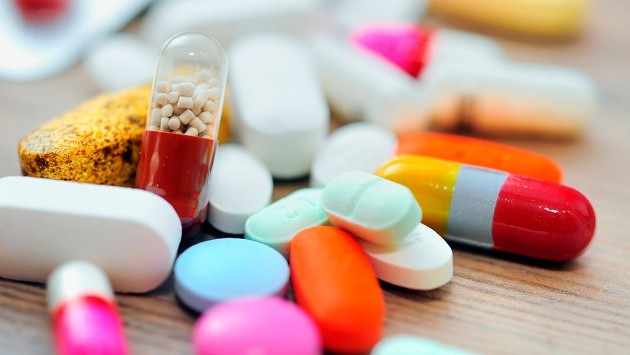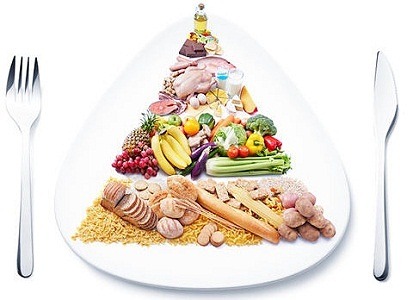Reflux gastritis- a chronic inflammatory disease of the stomach, in which the normal process of digestion is disturbed. There is a reflux (reflux) of the contents of the duodenum into the stomach, which is associated with dysfunction of the pylorus.
Food is thrown back with an admixture of bile, acids. As a result, inflammation of the walls of the stomach occurs, since it cannot cope with the pathological aggressive environment.
The types of this disease differ among themselves depending on the causes of its occurrence, as well as the individual characteristics of the course of the pathology. They may be as follows:
- Superficial reflux gastritis- characterized by damage to the upper layer of cells or epithelium. To protect against bile that enters the stomach from the duodenum, new cells form in place of the old affected cells. The process is dangerous not only in violation of digestion. Over time, there is a risk of developing a cancerous tumor.
- Erosive reflux gastritis- characterized by the appearance of erosions and small, small ulcers on the gastric mucosa. As a rule, the process is accompanied by severe pain. Long-term complex treatment is required. With a prolonged course, the process can develop into an ulcer.
- atrophic reflux gastritis- refers to the most dangerous process, as it is caused by the progression of atrophic changes in the mucous walls. It is often referred to as a precancerous condition, because it can eventually lead to a malignant tumor.
Forms of the disease
They differ depending on in which part of the body the pathological process is localized, as well as on the nature of the course of the disease:
- If the doctor makes a diagnosis "focal gastritis", we are talking about the localization of the pathological process. Inflammation can be on the entire mucosa, or it can cover a specific department. With a local lesion, a diagnosis is made - focal gastritis. The main symptomatology corresponds to reflux gastritis.
- At diffuse form uniform inflammation of the entire gastric mucosa occurs. It differs from other forms in the affected area.
- acute form develops rapidly and is accompanied by severe symptoms. It can occur against the background of chemical poisoning, pathogenic bacteria entering the body, etc.
- At chronic form there is inflammation and degenerative changes in the gastric mucosa for a long time. Symptoms are not as pronounced as in the acute form.
Causes
In the last century, it was believed that the main cause of gastritis is malnutrition. Modern medicine determines many reasons that one way or another lead to the development of this disease.
Consider the main reasons.
- The disease can occur against the background of chronic duodenitis (inflammation of the duodenum).
- After prolonged use of painkillers(Nurofen, Analgin and others), as well as anti-inflammatory nonsteroidal drugs.
- Increased pressure in the duodenum.
- After surgery(gastric resection, etc.).
- Pathological work of the gatekeeper.
Symptoms
Reflux gastritis has a pronounced symptomatology. You should know about it so that you can suspect the appearance of this disease in time and consult a doctor in time.
- Stomach ache, aggravated after eating.
- Insufficiency of the cardia of the stomach: nausea, burning, heartburn.
- May be vomiting with bile, and in some forms and blood.
- indigestion ( constipation or diarrhea).
- Loss of appetite, weight loss.
- Bloating, heaviness after eating, feeling of fullness in the stomach.
- Belching, often with an unpleasant sour smell or bitter taste.
- Dry mouth.
- General malaise, weakness, with an acute form and severe inflammation, a rise in body temperature is possible.

Treatment of the disease
Treatment of reflux gastritis must be comprehensive. What it is? It includes taking medications and maintaining a healthy lifestyle:
- proper nutrition, good rest, outdoor sports,
- long sleep, elimination of stress factors,
- as well as constant monitoring by a doctor and compliance with his recommendations.
Medical treatment
As a rule, doctors prescribe a complex to eliminate the symptoms and the cause that led to.
- Prescribing drugs that reduce the production of gastric juice ( ranitidine, omeprazole).
- Taking medications that have protective properties of the mucosa from the effects of damaging factors and reduce pain ( denol, venter).
- If an infection (Helicobacter pylori) needs to be treated, antibiotics are given ( amoxiclav).
- Taking funds to improve gastrointestinal motility ( motilium, itomed).
- Enzyme drugs ( mezim, Creon, festal).
- In case of digestive disorders (constipation, diarrhea), various prebiotics, drugs for the treatment of dysbacteriosis ( linex, bifiform other).
- Vitamin complexes ( vitrum, alphabet) as an adjunct to therapy.
Physiotherapy procedures
Quite often used as an auxiliary method of treatment.
Doctors prescribe physiotherapy only during remission and after the exclusion of ulcers or neoplasms. As a rule, with an erosive form, physiotherapy is not applied at all. For therapy, courses of electrophoresis or phonophoresis are prescribed.
The duration depends on the severity of the disease and the individual characteristics of the patient. Average 10 to 14 days. Then the course can be extended if necessary.
Surgery
It may be required for the development of complications:
- The emergence of neoplasms. Intestinal metaplasia often becomes the cause of a malignant tumor.
- Severe pyloric insufficiency.
- Deep erosion, ulcers and the presence of severe bleeding on their background.
- Scar formation.
Treatment with folk remedies
Includes, plant extracts, herbal gastrointestinal collections. Phytotherapy should not replace the main treatment, but can be a good addition for a speedy recovery and improved well-being.
How to treat the disease with folk remedies?
- For the prevention of relapses (in acute form) it helps well dandelion syrup. Fresh flowers are placed in a glass container, covered with sugar and kneaded well until syrup appears. For prevention, it is taken 1 time per day. During an exacerbation, you can drink 2-3 times a day.
- Cope well with the symptoms of the disease herbal gastrointestinal preparations. For example, you can prepare a collection of anise fruits, peppermint, calendula, fireweed, marsh calamus rhizomes. A decoction is prepared from herbs in a water bath, which is taken 4-5 times a day for half a glass.
- Excellent pain reliever, antispasmodic chamomile. You can make sweet syrup from it (as well as from dandelions) or decoctions.
- Useful to take celery root juice(30 minutes before meals, one teaspoon).
- An infusion of St. John's wort well reduces inflammation and pain. Prepare it in the same way as chamomile, in a water bath.
Healthy food and diet
During the treatment of gastritis, it is imperative to pay attention to the regimen and. It should be aimed at restoring intestinal motility, normalizing microflora, and reducing acidity.

It is very important to follow the principles of a healthy diet and a diet for reflux gastritis.
Excluded from the diet:
- Fried, salty, spicy, fatty, spicy, canned foods.
- Semi-finished products.
- Alcoholic products and sweet sparkling water.
- Confectionery flour products, sweets.
- Any products containing harmful food additives and dyes.
- Fatty meat and mushroom broths.
- Any kind of sauces, including tomato, ketchup and mayonnaise.
- Marinated products.
- Black tea and strong coffee.
- Dairy products.
- Hard-boiled eggs.
- Foods that can cause flatulence (legumes, fresh cabbage, black bread).
- Fresh herbs, fruits and vegetables in raw form. Products must be heat treated before consumption.
Principles of healthy eating:
- Compliance with fractional nutrition. You need to eat often and in small portions. Food is recommended to be consumed at the same time.
- Food must be warm. Cold, hot dishes are excluded, as they can injure the walls of the esophagus and stomach.
- It is recommended not to drink drinks with meals.
- Food should be chewed thoroughly.
- Dishes should be steamed, baked or boiled.
Menu for the day
- For breakfast various mucous porridges are recommended (oatmeal for example), soft-boiled eggs, fresh cottage cheese (fresh or calcined), not strong tea with milk or green tea.
- For lunch you can cook slimy cereal soups, milk soups with pureed cereals or vegetable soups in a light broth. Boiled meatballs, stewed vegetables (potatoes, carrots, onions, zucchini) with lean meat, boiled fish, steam cutlets from dietary meat (rabbit, turkey, beef) are suitable for the second
- For an afternoon snack you can eat cottage cheese, dried fruit compote or jelly with crackers. 1

